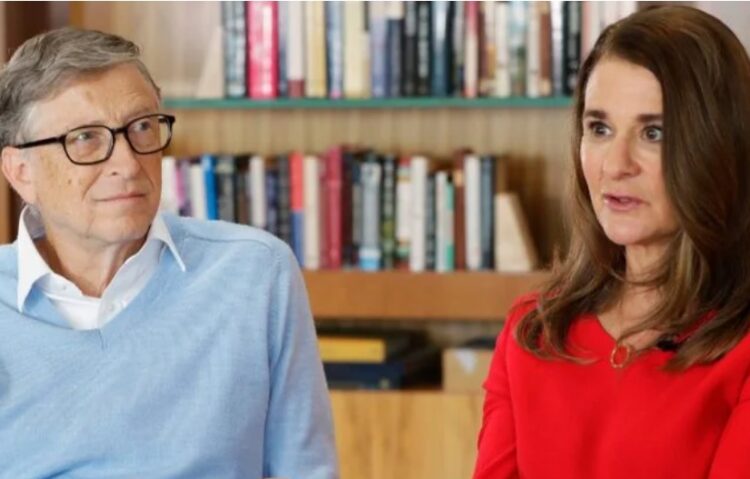News
NAHCON’s Hajj Savings Scheme: A Path to Affordable Pilgrimage in Nigeria

One of the greatest challenges faced by prospective pilgrims is raising the full payment for Hajj straight away. The cost ranges between ₦8.3 million to ₦8.7 million for Nigerian pilgrims in 2025. Instead of taking on debts or liquidating assets to meet these costs, the Hajj Savings Scheme offers an alternative by spreading the financial burden over several years, making it less daunting for participants.
For millions of Nigerian Muslims, the Hajj pilgrimage represents not only a religious obligation but also a lifetime spiritual aspiration. However, the global rising cost of performing Hajj, has made the journey increasingly out of reach for many. Timely enough, the National Hajj Commission of Nigeria (NAHCON) had introduced a promising initiative: the Hajj Savings Scheme (HSS). This scheme offers Nigerian Muslims a structured, long-term planning approach to fund their pilgrimage.
If fully embraced by both the government and the Muslim community, the Hajj Savings Scheme has the potential to make Hajj more affordable, accessible, and financially sustainable for Nigerians in the future.
The Hajj Savings Scheme, developed by NAHCON in collaboration with Jaiz Bank, is designed to help prospective pilgrims save for Hajj gradually over time. Through the scheme, individuals can make regular contributions to a dedicated account, earning interest-free returns while accumulating sufficient funds for the pilgrimage.
The scheme not only addresses the immediate financial pressure of Hajj payments but also promotes a culture of financial discipline and long-term planning within the Muslim community.
Key Benefits of the Hajj Savings Scheme
1. Ease of Financial Planning
One of the greatest challenges faced by prospective pilgrims is raising the full payment for Hajj straight away. The cost ranges between ₦8.3 million to ₦8.7 million for Nigerian pilgrims in 2025. Instead of taking on debts or liquidating assets to meet these costs, the Hajj Savings Scheme offers an alternative by spreading the financial burden over several years, making it less daunting for participants.
2. Stability Amid Rising Costs
Global inflation, exchange rate fluctuations, and increased costs of services in Saudi Arabia have contributed to higher Hajj fares. By saving over time, individuals are less vulnerable to sudden price hikes. Additionally, the scheme allows NAHCON to lock in early contracts with Saudi service providers, potentially securing lower costs for accommodation, transportation, and other services.
3. Subsidy Opportunities Through Government Partnership
If widely adopted, the Hajj Savings Scheme could encourage greater governmental involvement in subsidizing or supporting Hajj costs. Countries like Indonesia and Malaysia have demonstrated how effective savings schemes can make Hajj affordable. In Indonesia, for instance, the government uses funds from its Hajj savings program to provide subsidies for pilgrims, resulting in fares that are significantly lower than Nigeria’s. Nigeria could emulate this model, using contributions from the HSS to negotiate better deals and provide financial relief to pilgrims.
4. Promoting Financial Inclusion
The HSS also aligns with efforts to promote financial inclusion, particularly for low- and middle-income Nigerians. By providing an accessible platform to save for Hajj, it empowers more Muslims to achieve their religious aspirations without facing undue financial hardship.
The Nigerian government has a crucial role to play in ensuring the success of the Hajj Savings Scheme. First, it must provide policy support and incentives that encourage participation. For example, introducing tax benefits for HSS contributors could motivate more people to join.
Second, the government can work with NAHCON to ensure transparency and efficiency in the management of funds. Building public trust in the scheme is critical, as skepticism about financial mismanagement could deter potential participants.
Finally, the government can leverage HSS funds to negotiate more affordable Hajj packages. Bulk purchasing of services such as flights and accommodation would lower costs for Nigerian pilgrims, creating a win-win situation for all stakeholders.
While government support is important, the success of the HSS ultimately depends on the buy-in from Nigerian Muslims. The Muslim community must recognize that the Hajj Savings Scheme is a practical solution to the financial challenges associated with Hajj. Religious leaders, Islamic organizations, and community groups have a significant role to play in raising awareness about the scheme and educating Muslims on its benefits.
Beyond financial savings, the scheme also aligns with Islamic values of planning, discipline, and financial prudence. By adopting the HSS, Nigerian Muslims can not only fulfill their religious obligations but also set an example of responsible financial management for future generations.
A Vision for the Future
If properly utilized, the Hajj Savings Scheme could revolutionize the way Hajj is organized and funded in Nigeria. Over time, it could reduce the financial stress associated with the pilgrimage, enabling more Muslims to participate without compromising their financial stability. Additionally, the scheme could help Nigeria transition toward a more efficient, subsidized Hajj system similar to those in Indonesia and Malaysia.
By embracing the HSS, the Nigerian government and Muslim community can work together to ensure that the Hajj remains a cherished, attainable experience for all. It is time for Nigeria to fully commit to this innovative initiative, paving the way for a more affordable and sustainable future for pilgrims.
Shafii is a staff of NAHCON.
News
Angry investors raid CBEX office, loot assets in Ibadan after digital Platform crash

A group of angry individuals, on Monday evening, stormed the CBEX office located in the Oke Ado area of Ibadan, Oyo State, looting furniture and other items after the digital trading platform reportedly crashed.
Eyewitnesses said the mob forcibly entered the premises, carting away tables, couches, and other office equipment.
The attack is believed to have been triggered by the sudden collapse of the platform, which allegedly left many users with zero balance in their accounts.
Following the incident, several users expressed frustration and grief over the loss of their investments, with some taking to social media to share their experiences.
A video circulating online shows a large crowd at the CBEX office, with individuals seen removing various items from the building.
News
‘Not something I’d wish on anyone’ — Melinda Gates opens up on divorce

Melinda Gates, the ex-wife of Microsoft co-founder Bill Gates, has spoken about their divorce in her new book ‘The Next Day’.
Bill and Melinda got married in 1994 but announced their divorce in 2021 — after 27 years together.
In a recent interview on ABC’s Good Morning America, Melinda revealed that she chose to discuss her divorce openly to be true to herself and acknowledge others who have experienced similar situations.
She described the separation as “painful” but also a “transition that had some growth in it”.
The 60-year-old also emphasised that divorce is a challenging experience for any family and expressed her hope that her story might offer some insight.
“It was important because if I am going to be my most authentic self. People knew I had gone through it,” she said.
“And it is hard on any family, so I write from my perspective. But it’s not something I would wish on anybody — and unfortunately so many families go through it.
“It is a big transition. And for me, while it was painful for sure, I ended up learning some lessons and there was some growth in there, too.”
Bill and Melinda first met in 1987, when she became a product manager at Microsoft. They married in Hawaii in 1994 and founded the Bill & Melinda Gates Foundation — a nonprofit dedicated to combating global poverty and disease — in 2000.
Following their divorce, Melinda resigned from the foundation in May 2024.
The former couple shares three children: son Rory, 25, and daughters Phoebe, 22, and Jennifer, 28.
In January, Bill described his divorce from Melinda as his “biggest regret in life”.
News
SHOCKING! One month after giving birth, woman discovers another baby in her womb

A woman who had given birth just a month earlier was rushed to the hospital after sensing something was wrong—only to discover she was still carrying another baby.
This unusual incident was shared in a viral post on the social media platform X, formerly known as Twitter.
Woman discover another baby in womb a month after giving birth
Woman discover another baby in womb a month after giving birth.
According to the post, the woman had initially given birth at a hospital and returned home after being stitched.
However, a month later, she began to feel unwell and went back to the hospital, where doctors discovered another child still in her womb.
She was immediately put into labor again and successfully delivered the second baby.
The post read: “There’s a Xhosa lady on TT who gave birth to a child in March, got stitched and went home. Well, a month later, she felt something was wrong with her, it turns out there was another child in her womb. So, she gave birth again. She now has twins that are a month apart.”
As the post circulated online, concerned users flooded the comment section to share their thoughts and reactions.
See some reactions below:
@Melo_Malebo: “Idk what’s more shocking, the fact that twins can have different fathers or this one. Also, wasn’t the other one big enough for nurses to see there could still be someone in there ?”
@Fifi_Kumalo: “So the ultrasound didn’t catch the other baby 
@Ralph_Nzuza: “When my lil sister got operated they cut the baby on the cheek after the surgery they forgot those scalpels inside her.”
@StraightupGal: “Surely this incompetence is illegal. One can die giving birth, what more when they have stitched your baby up for a couple of more weeks? 
@mgwatyu_: “Must have delivered at a clinic via NVD, Not booked so no scan or late booker. Cannot be a cesarean section. The stiching must have just been for tears.”
@phuti_mathobela: “God works in mysterious ways some people get to experience his ways in this form while some people in their near death experience. He is God’s of miracles.”
WATCH VIDEO:
There’s a Xhosa lady on TT who gave birth to a child in March, got stitched and went home. Well, a month later, she felt something was wrong with her, it turns out there was another child in her womb. So, she gave birth again. She now has twins that are a month apart.
— Musanathi Writes 
-

 News20 hours ago
News20 hours agoYou must refund N300m, Rivers State tells NBA
-

 News7 hours ago
News7 hours agoPeter Obi speaks as Benue govt. blocks humanitarian visit
-

 Politics23 hours ago
Politics23 hours agoBwala accuses Senator Ndume of plans to defect from APC
-

 Foreign21 hours ago
Foreign21 hours agoUS orders 30-day registration for all foreign nationals or face jail, deportation
-

 Opinion18 hours ago
Opinion18 hours ago“Chief. Dr. Ekuogbe Akpodiete; A Philanthropist, Lawyer, and Statesman”
-

 News23 hours ago
News23 hours agoPolice sack officer who killed one, injured two in Calabar
-

 News8 hours ago
News8 hours agoVideo: Woman Shares Her ‘Japa’ Experience, Claims Burkina Faso Is Preferable to Nigeria
-

 News8 hours ago
News8 hours agoPower Generation Companies Express Concern Over N4 Trillion Unpaid debts, Warn Imminent Shutdown



















